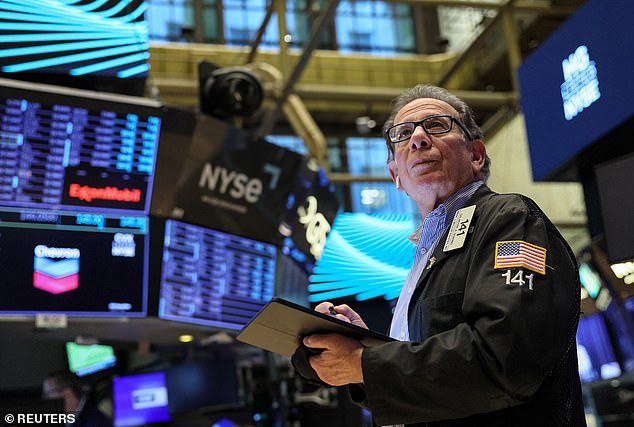The 2024 presidential election could impact your 401(k) – here’s how the markets have behaved during election years in the past
Stocks are more volatile in presidential election years because markets dislike uncertainty. This means Americans can expect this to impact their 401(k) next year.
Stocks and shares make up a large portion of many employees' 401(k)s — so overall market performance will determine how many are in them late next year.
American households are also actively investing in the stock market more than ever. The share of US households in total financial assets reached 36.3 percent in the third quarter, well above any previous business cycle. MarketWatch reports this.
Between 1952 and 2022, the average annual return of the S&P 500 — which tracks the performance of stocks in the 500 largest companies in the U.S. — was 12.17 percent, according to historical market data.
But during election years during the same period, it was only 10.62 percent.
Shown is the average performance of the S&P 500 in years when the incumbent party won and lost. The performance of the markets in the three months leading up to the election (in gray) is telling for the election outcome
An outlier was 2020, when the S&P 500 gained more than 18 percent as incumbent President Donald Trump campaigned against Biden for the White House. Markets rallied as Congress passed Covid-19 stimulus packages.
Three months until the elections
However, volatility tends to hit in the last three months before elections.
And in the past, the performance of the markets in those months also determined the election outcome, according to an analysis by Strategas Research Partners of more than twenty past elections.
When the S&P 500 rises in the three months leading up to the election, the incumbent party usually wins.
However, if the markets fall during that period, the counterparty usually wins.
That's because when markets and the economy are performing well, sentiment is likely to favor the incumbent president. Smoother markets may therefore be related to Democrats retaining control of the White House.

A trader is seen working at the New York Stock Exchange on November 16
Consider exercising caution just before retirement
Still, those looking to plan their retirement don't have to be particularly concerned, especially if they're under about 50 and “can handle the short-term volatility,” Christine Benz, director of personal finance and retirement planning at Morningstar, told DailyMail .com.
However, Benz did suggest that older Americans nearing retirement may want to consider the risks associated with having a large portion of assets tied up in volatile stocks.
“Buffer assets can see them through prolonged stock volatility,” Benz said. These can be held in short- and medium-term bonds or cash, she said.
“Investors really need to structure their portfolios to absorb short-term volatility for a year, two years or even over a longer period of downperformance.”
That sentiment was echoed by Mark Sorensen, CEO and founder of 401(k) Maneuver.
“It's a matter of safety versus risk and asset allocation,” Sorensen says. “I think the near-term volatility will be quite short-lived.”
Play it safe
Historical data supports the idea that investors have become more conservative in election years, moving assets away from stocks that could quickly experience losses and toward more liquid assets.
Morningstar data shows that an average net of $76 billion was invested in equities in the election years between 1992 and 2020. In the same period, in the years after the elections, that increased to an average of $168 billion.
But converting assets into cash can also be costly as investors could miss out on a recovery, An said analysis by Blackrock.
Nevertheless, Benz also noted that employees who think they know exactly when they will retire should be careful, as anything can happen.
“There are a lot of things that can force people out of the workforce sooner than they expected,” she said. 'It is important to be preventative when it comes to introducing safe assets into the portfolio.'
